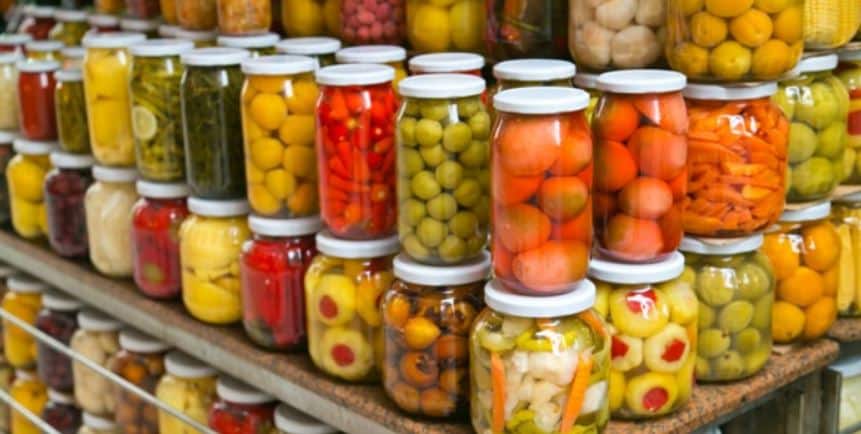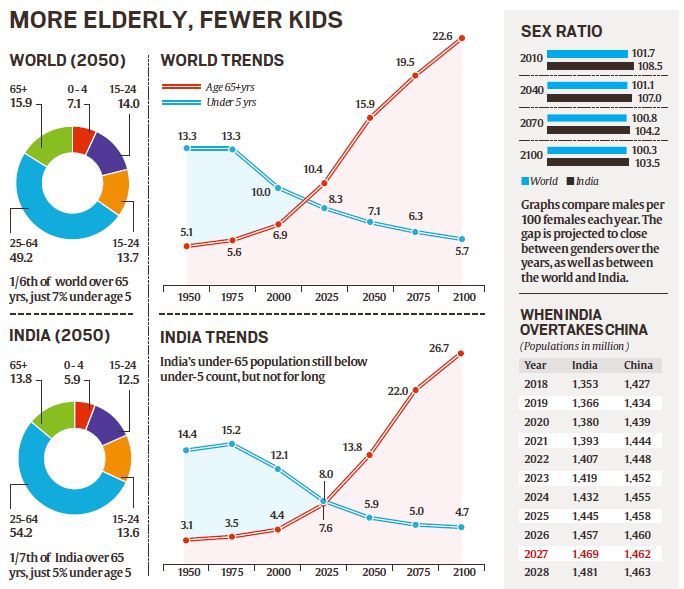Table of Contents
Formalization of micro food processing enterprises
Food processing is the transformation of agricultural products into food, or of one form of food into other forms.
Recently, Ministries of Food Processing Industries launched the PM Formalization of Micro Food Processing Enterprises (PM FME) scheme on 29th June 2020 as a part of “Atma Nirbhar Bharat Abhiyan”.
Scheme would generate total investment of Rs 35,000 crore and generate 9 lakh skilled and semi-skilled employment and benefit 8 lakh units through:-
- Access to information,
- Training,
- Better exposure and formalization.
Food products manufactured by the rural entrepreneurs in the villages have a long tradition of supplying Indian food products to the local population.
Challenges faced by food processing sector | UPSC – IAS
Challenges faced by food processing sector Unorganised food processing sector faces a number of challenges which limit their performance and their growth.
These challenges include:-
- Availability of raw materials: Agricultural produce is an important factor for sustaining food processing activities,
- High competition and Training,
- Lack of access to modern technology & equipment,
- Storage Constraints,
- Access institutional credit,
- lack of basic awareness on quality control of products; and
- Lack of branding & marketing skills etc.
Owing to these challenges, the unorganised food processing sector contributes much less in terms of value addition and output despite its huge potential.
- Unorganized food processing sector comprising nearly 25 lakh units contribute to 74% of employment in food processing sector.
- Nearly 66% of these units are located in rural areas and about 80% of them are family-based enterprises supporting livelihood rural household and minimizing their migration to urban areas. These units largely fall within the category of micro enterprises.
Objectives of the micro food processing enterprises | UPSC – IAS
- Increase in access to finance by micro food processing units.
- Increase in revenues of target enterprises.
- Enhanced compliance with food quality and safety standards.
- Strengthening capacities of support systems.
- Transition from the unorganized sector to the formal sector.
- Special focus on women entrepreneurs and Aspirational districts.
- Focus on minor forest produce in Tribal Districts.
Details of the PM Formalization of micro food processing enterprises | UPSC – IAS
With a view to providing financial, technical and business support for upgradation of existing micro food processing enterprises, the Ministry of Food Processing Industries (MoFPI) has launched an all India “Centrally Sponsored PM Formalisation of Micro food processing Enterprises (PM FME) scheme” to be implemented over a period of five years from 2020-21 to 2024-25 with an outlay of Rs 10,000 crore.
The expenditure under the scheme would to be shared in 60:40 ratio between Central and State Governments, in 90:10 ratio with North Eastern and Himalayan States, 60:40 ratio with UTs with legislature and 100% by Centre for other UTs.
One District One Product (ODODP) | UPSC – IAS
- The Scheme adopts One District One Product (ODODP) approach to reap benefit of scale in terms of procurement of inputs, availing common services and marketing of products.
- The States would identify food product for a district keeping in view the existing clusters and availability of raw material.
- The ODOP product could be a perishable produce based product or cereal based products or a food product widely produced in a district and their allied sectors.
- Illustrative list of such products includes mango, potato, litchi, tomato, tapioca, kinnu, bhujia, petha, papad, pickle, millet based products, fisheries, poultry, meat as well as animal feed among others.
- Preference would be given to those producing ODOP products. However, units producing other products would also be supported. Support for common infrastructure and branding & marketing would be for ODOP products.
- The Scheme also place focus on waste to wealth products, minor forest products and Aspirational Districts.
- Existing Individual micro food processing units desirous of upgradation of their unit can avail credit-linked capital subsidy @35% of the eligible project cost with a maximum ceiling of Rs.10 lakh per unit. Seed capital @ Rs. 40,000/- per SHG member would be provided for working capital and purchase of small tools.
- FPOs/ SHGs/ producer cooperatives would be provided credit linked grant of 35% for capital investment along the value chain.
- Support would be provided through credit linked grant @ 35% for development of common infrastructure including common processing facility, lab, warehouse, cold storage, packaging and incubation center through FPOs/SHGs/cooperatives or state owned agencies or private enterprise to use by micro units in the cluster.
- Support for marketing & branding would be provided to develop brands for micro units and groups with 50% grant at State or regional level which could benefit large number of micro units in clusters.
The Scheme places special focus on capacity building and research. NIFTEM and IIFPT, two academic and research institutions under MOFPI along with State Level Technical Institutions selected by the States would be provided support for training of units, product development, appropriate packaging and machinery for micro units.
Extension of Operation Greens from TOP (Tomato-Onion-Potato) crops to all Perishable Fruits & Vegetables (TOP to Total)
- Operation Greens Scheme, being implemented by MoFPI has been extended from tomato, onion and potato (TOP) crops to other notified horticulture crops for providing subsidy for their transportation and storage from surplus production area to major consumption centres.
- The objective of intervention is to protect the growers of fruits and vegetables from making distress sale due to lockdown and reduce the post -harvest losses.
Eligible Crops:-
Fruits– Mango, Banana, Guava, Kiwi, Lichi, Papaya, Citrus, Pineapple, Pomegranate, Jackfruit; Vegetables: – French beans, Bitter Gourd, Brinjal, Capsicum, Carrot, Cauliflower, Chillies (Green), Okra, Onion, Potato and Tomato. Any other fruit/vegetable can be added in future on the basis of recommendation by Ministry of Agriculture or State Government
Eligible entities:-
Food Processors, FPO/FPC, Co-operative Societies, Individual farmers, Licensed Commission Agent, Exporters, State Marketing/Co-operative Federation, Retailers etc. engaged in processing/ marketing of fruits and vegetables.
Pattern of Assistance:-
Ministry will provide subsidy @ 50% of the cost of the following two components, subject to the cost norms:
- Transportation of eligible crops from surplus production cluster to consumption centre; and/or
- Hiring of appropriate storage facilities for eligible crops (for maximum period of 3 months);










